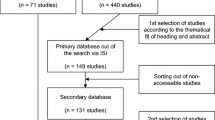Abstract
When formulating a policy related to food in a heterogeneous context within a nation or between nations, oppositional positions are more or less explicit, but always have to be overcome. It is interesting to note, though, that such elements as culture and religion have seldom been the focus in discussions about methods of decision-making in food policy. To handle discrepancies between oppositional positions, one solution is to narrow differences between partners, another to accept one partner or position as dominant. In a solid and lasting policy, any of these options has to be agreed upon by all the partners involved. In this article, I argue that context sensitivity and a shared picture of the situation are necessary bases for a solid food policy. Two methods for policy discussion are elaborated on and religious slaughter is given as an example of a heterogeneous setting with strongly diverging ideals. Several aspects have to be respected from the outset, such as culture, religion, and value systems. This condition is partly met in a model of informed consent and in a consensus model. The informed consent model is regarded as insufficient, because it lacks both methods of dealing with hierarchies and the goal of finding a shared and nuanced picture of the situation. A consensus model meets these tasks but might on the other hand, among other things, be too difficult to follow and to administer. For both models, some difficulties with justification of decisions arise. Five essential elements emanating from a combination of these models are suggested as a basis for a decision process regarding food policies: respect for each discussion partner, context sensitivity, respect for arguments including emotions, a shared picture of the situation, and finally relating theory and practice.
Similar content being viewed by others
References
Apel, K-O. (1973), “Das Apriori der kommunikationsgemeinschaft und die Grundlagen der Ethik,” Transformation der Philosophie, Frankfurt am Main, Suhrkamp Verlag
Apel, K-O., “Grenzen der Diskursethik? Versuch einer Zwischenbilanz,” Zeitschrift für philosophische Forschung, 1986, Bd 40, pp. 3–2
K-O. Apel (1990) Etik och kommunikation Daidalos Göteborg
S. Benhabib (1992) Autonomi och gemenskap. Kommunikativ etik, feminism och postmodernism Daidalos Göteborg
S. Benhabib (Eds) (1996) Democracy and Difference Princeton Univerity Press Princeton
J. Cohen (1989) “Deliberation and Democratic Legitimacy” A. Hamlin P. Pettit (Eds) The Good Polity Blackwell Oxford
G. Cvetkovich R. A. Löfstedt (Eds) (1999) Social Trust and the Management of Risk Earthscan London
F. Fischer (2000) Citizens, Experts, and the Environment: The Politics of Local Knowledge Duke University Press Durham and London
F. Fischer (2003) Reframing Public Policy Oxford University Press New York
J. Fishkin (1991) Democracy and Deliberation. New Directions for Democratic Reform Yale University Press New Haven
J. Fishkin (1995) The Voice of the People. Public Opinion & Democracy Yale University Press New Haven
J. Habermas (1984) The Theory of communicative Action – Reason and the Rationalisation of Society Polity Press Cambridge
J. Habermas (1986) “Moralität und Sittlichkeit” W. Kuhlmann (Eds) Moralität und Sittlichkeit Das Problem Hegels und die Diskursethik Suhrkamp Verlag Frankfurt am Main
J. Habermas (1991) Erläuterungen zur Diskursethik Suhrkamp Verlag Frankfurt am Main
J. Habermas (1996) Between Facts and Norms: Contributions to a Discourse Theory of Law and Democracy MIT Press Cambridge
M. Häyrinen-Alestalo E. Kallerud (2004) Mediating Public Concern in Biotechnology. A Map of Sites, Actors and Issues in Denmark, Finland, Norway and Sweden NIFU Oslo
L. Hennen (2003) “Experten und Laien – Bürgerbeteiligung und Technikfolgenabschätzung in Detuschland” S. Schicktanz J. Neumann (Eds) Bürgerkonferenz: Steritfall Gendiagnostik Ein Modellprojekt der Bürgerbeteiligung am bioethischen Diskurs Leske+Budrich Opladen 37–47
J. Knight J. Johnson (1994) ArticleTitle“Aggregation and Deliberation: On the Possibility of Democratic Legetimacy” Political Theory 22 277–296
V. Lund H. Röcklinsberg (2001) ArticleTitle“Outlining a Conception of Animal Welfare for Organic Farming Systems” Journal of Agricultural and Environmental Ethics 14 IssueID4 391–424 Occurrence Handle10.1023/A:1013049601079
L. Massimo T. J. Wiley E. F. Casari (2004) ArticleTitle“From Informed Consent to Shared Consent” The Lancet Oncology 5 384–387 Occurrence Handle10.1016/S1470-2045(04)01496-2
J. Meehan (Eds) (1995) Feminists Read Habermas: Gendering the Subject of Discourse Routledge New York
G. Munnichs (2004) ArticleTitle‘‘Whom to Trust? Public Concern, Late Modern Risks, and Expert Trustworthiness.’’ Journal of Agricultural and Environmental Ethics 17 IssueID2 113–130 Occurrence Handle10.1023/B:JAGE.0000017391.41994.d2
E. Noelle-Neumann (1991) “The Theory of Public Opinion: The Concept of Spiral of Silence” J. A. Anderson (Eds) Communication Yearbook 14 Sage Publications Newbury Park
M. C. Nussbaum (2003) “Emotions as Judgments of Value and Importance” R. C. Solomon (Eds) What is an Emotion? Classic and Contemporary Readings EditionNumber 2 Oxford University Press Oxford 271–283
O. O’Neill (2002) Autonomy and Trust in Bioethics Cambridge University Press Cambridge
K. Popper (1962) The Open Society and Its Enemies EditionNumber(5th edn. rev.), Routledge London
H. Röcklinsberg (2001) Das seufzende Schwein. Zur Theorie und Praxis in deutschen Modellen zur Tierethik Harald Fischer Verlag Erlangen
L. Sanders (1997) ArticleTitle“Against Deliberation” Political Theory 25 347–376
A. Stirling (2005) “Opening up or Closing Down? Analysis, Participation and Power in the Social Appraisal of Technology” M. Leach I. Scoones B. Wynne (Eds) Science, Citizenship and Globalisation Zed London 218–231
J. Teorell (2003) “Demokrati och deltagande. Tre ideal i teorin och praktiken” M. Giljam J. Hermansson (Eds) Demokratins mekanismer Liber Malmö
I. M. Young (1996) “Communication and the Other: Beyond Deliberate Democracy” S. Benhabib (Eds) Democracy and Difference Princeton University Press Princeton
Author information
Authors and Affiliations
Corresponding author
Rights and permissions
About this article
Cite this article
Röcklinsberg, H. “Consent and Consensus in Policies Related to Food – Five Core Values”. J Agric Environ Ethics 19, 285–299 (2006). https://doi.org/10.1007/s10806-005-6166-y
Accepted:
Issue Date:
DOI: https://doi.org/10.1007/s10806-005-6166-y




